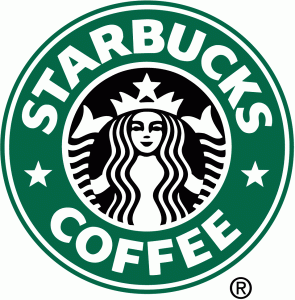What Starbucks can teach us about B2B marketing
 I never used to understand the appeal of Starbucks.
I never used to understand the appeal of Starbucks.
Before becoming an avid coffee drinker, I couldn’t grasp why the alternative atmosphere, odd ordering system, or premium (sometimes crazy) pricing was so appealing to so many coffee loving consumers. It all seemed like a bit much.
Everything changed for me while at university. A lack of in-school study space and a need for caffeine suddenly made Starbucks a whole lot more appealing. As both a newfound coffee connoisseur and a marketing student, I spent a lot of time thinking about what makes Starbucks so successful. Howard Schultz is also a favourite of a lot of business school professors. Here a few of the top things I feel B2B marketing professionals can learn from the phenomenal success of Starbucks:
- Start with Culture Great brands are almost always reflections of great cultures. As Bill Taylor has written for HBR, success is “about caring more than other companies — about customers, about colleagues, about how the organization conducts itself in a world with endless opportunities to cut corners and compromise on values.” A unique aspect of Starbucks’ marketing efforts is that internal culture is as much of a focus as external activities, and Starbucks is reknowned as much for its unique culture as it is for its coffee. To be truly successful, B2B marketing professionals should expand their thinking beyond the scope of traditional marketing and ensure everyone in the organization ‘lives the brand’ (through regular training initiatives and openness).
- Create Authentic Experiences As I’ve written about previously, great brands are a summation of experiences created, conversations fostered, and feelings elicited. Where Starbucks excels is in creating a range of authentic customer experiences that are collectively designed to allow customers to satisfy their own unique needs. There’s no cookie cutter experience and a Starbucks experience is always an authentic, personal one regardless of where you are in the world. It’s been well written about that Starbucks’ goal is to become more than a coffee shop, striving to be a “Third Place”. Accordingly, the company structures itself from top to bottom with the goal of fulfilling that defining idea. B2B marketing professionals should take a similar approach to B2B products and services and design marketing programs that emphasize flexibility and relevance at every stage of the B2B sales cycle. Ensuring that ‘customer experience management’ is chief among the buzz words around your office should be a key B2B marketing priority.
- Foster Communities At the end of the day, a great product or service will naturally generate a community of fans. But as Starbucks has proven with MyStarbucksIdea and other community building initiatives, great brands help to enable their most passionate brand advocates. From a B2B marketing perspective, fostering communities can help maximize the value of long-term customer relationships at minimal cost. Engaged customers may have information about your products and services that could be extremely valuable. Why not harness that knowledge for the benefit of all of your customers?
- Marketing Tactics From 1987 to 1997, Starbucks spent less than $10 million per year on advertising as it expanded its empire across the globe. From a very early point, Starbucks understood that the most effective marketing tactics for the brand weren’t paid mediums, but simply word of mouth. Because of the nature of B2B business, organizations would be wise to place an equal emphasis on generating ‘offline’ buzz. Starbucks also excels at embracing opportunity with its marketing tactics, whether during holiday seasons or because of the performance of particular products. B2B marketing professionals should focus on utilizing B2B marketing tactics that are agile enough to adapt to changing circumstances and take advantage of market opportunities.
If you’re interested in learning more about how Venture Accelerator Partners can help your growing business with B2B marketing or startup marketing, please don’t hesitate to contact me or download one of our marketing white papers to continue learning.